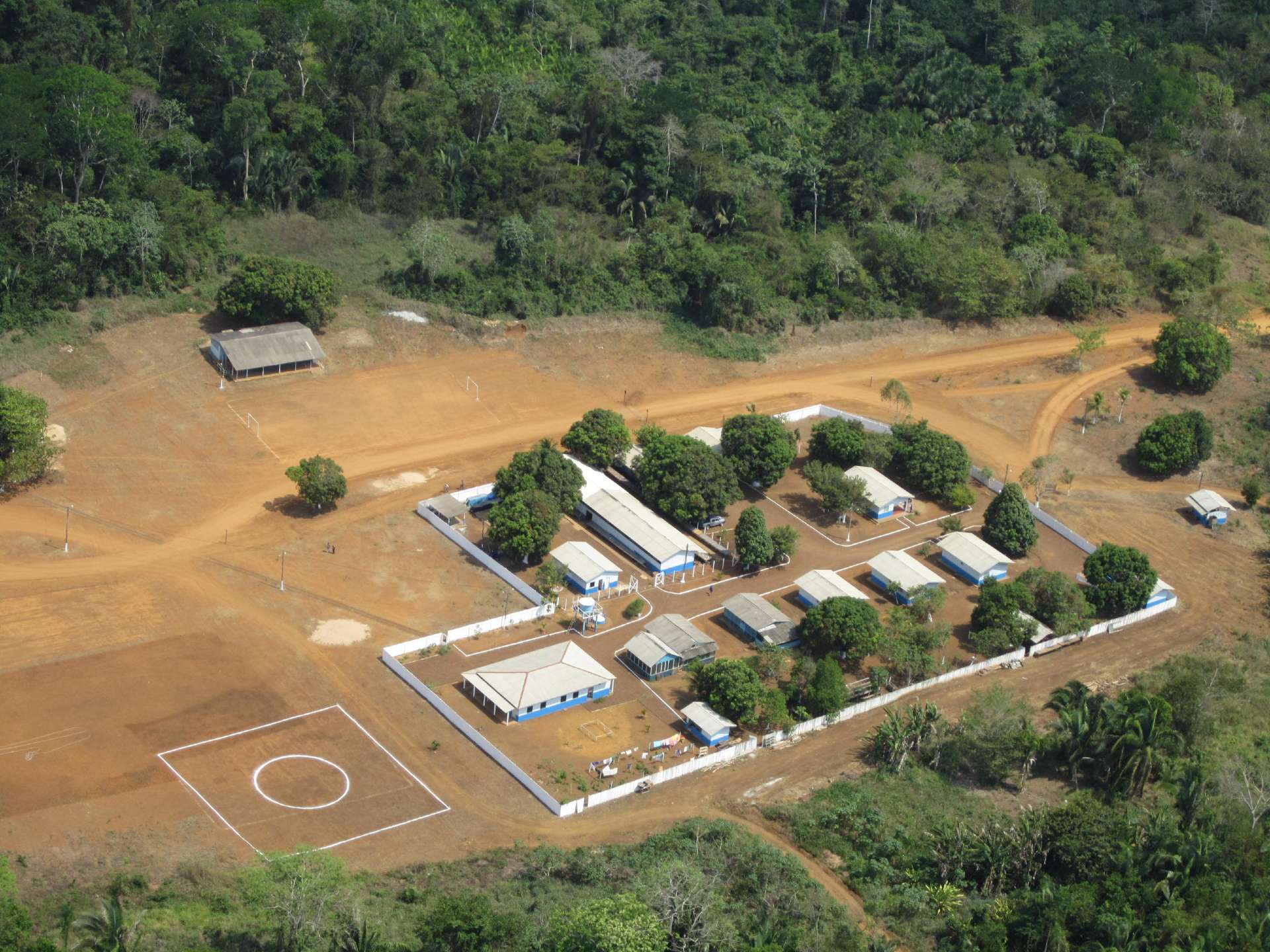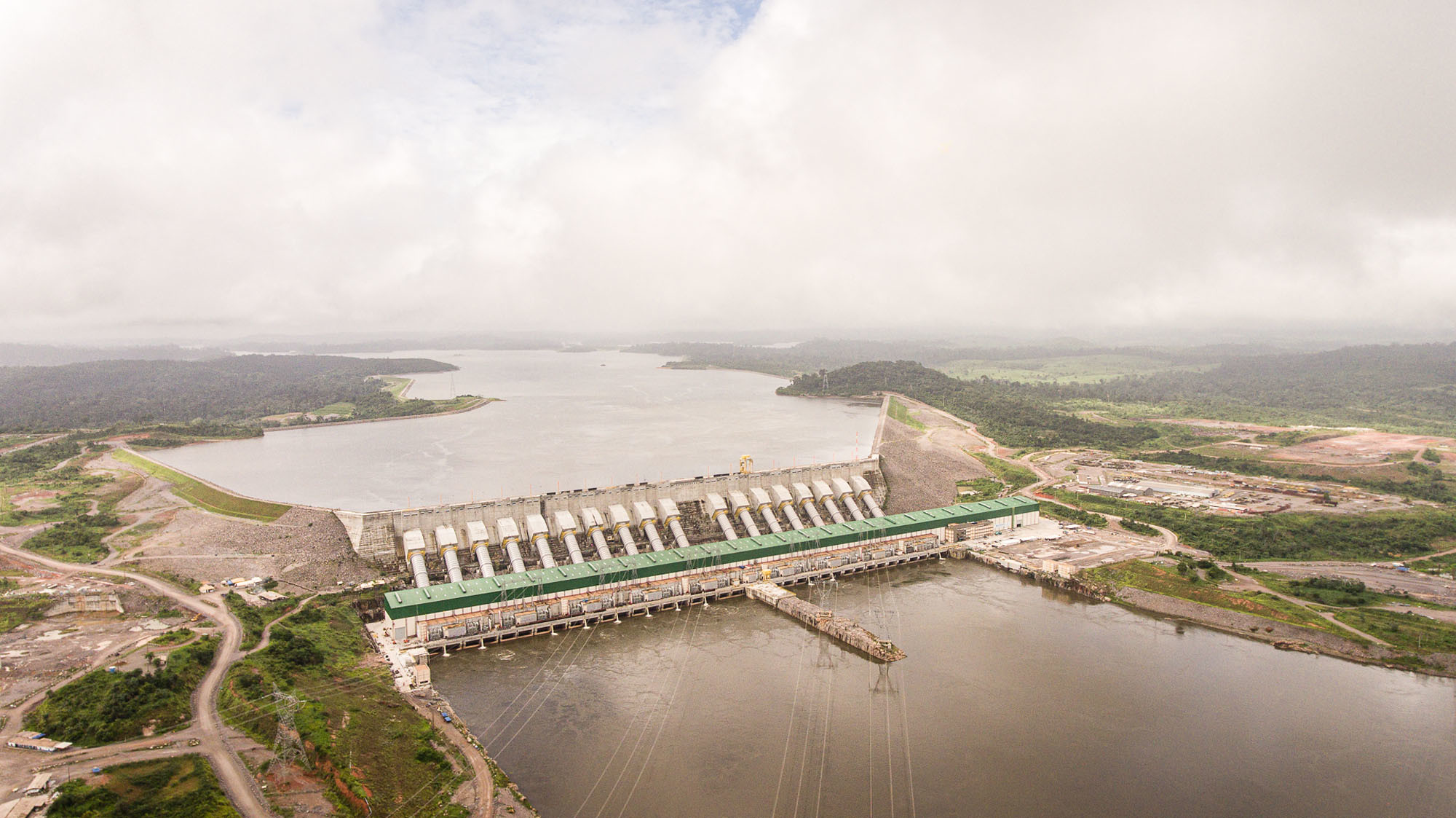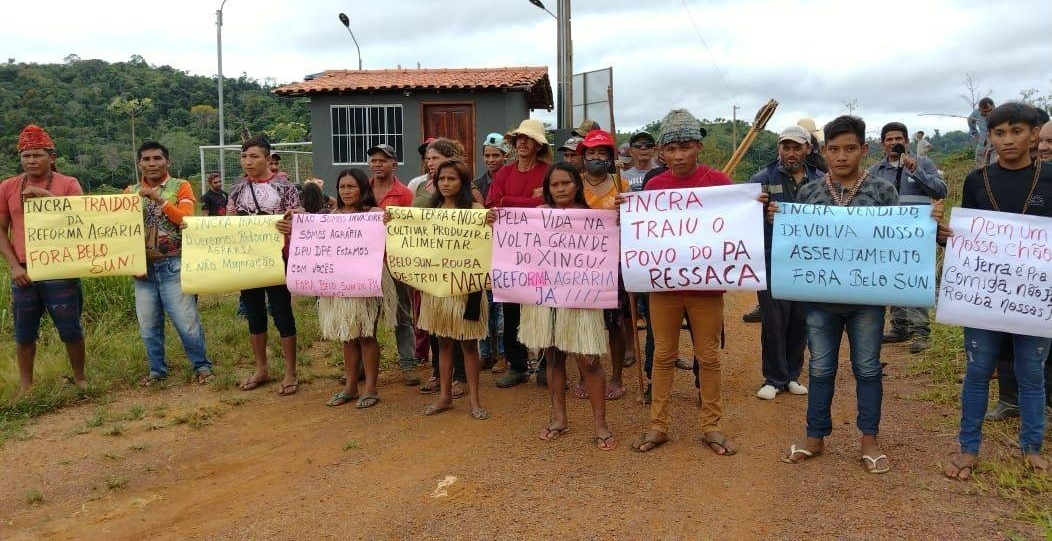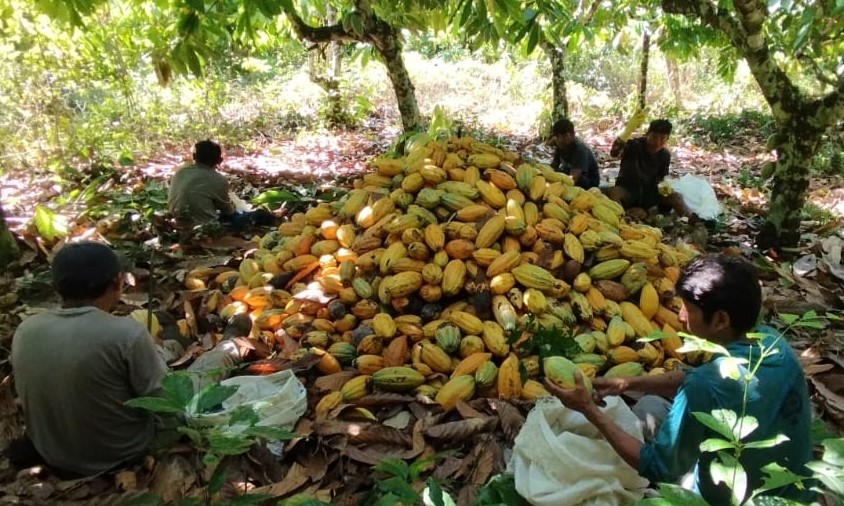Canadian mining company Belo Sun asked a Pará State Court to arrest 40 protesters and members of environmental organizations who oppose its plan to establish Brazil’s largest open-pit gold mine. Planned for the area known as Volta Grande do Xingu, in Pará, the project is surrounded by criticism due to environmental risks and the way the company obtained land from the Federal Government to establish the mine.
The arrest request was filed last October, more than a year after 50 protesters set up a camp in a land reform area that had been transferred to the mining company by the National Institute of Colonization and Agrarian Reform (INCRA).
“We face daily threats for the simple fact that we don’t agree with this deadly project of opening the largest open-pit gold mine in the middle of the Amazon,” said farmer Amilson Cardozo, a former candidate for the Parauapebas city council in the Workers’ Party ticket and a leader of the ‘New Alliance’ camp, which challenges the transfer of federal land to Belo Sun.
The disputed area is located within the Ressaca Settlement Project, created more than 20 years ago to house 600 farmer families between the municipalities of Altamira and Senador José Porfírio, in northern Pará. The location is close to Volta Grande do Xingu, an area already affected by the Belo Monte hydroelectric plant.
In 2021, the settlement was dismembered by INCRA and part of it was transferred to Belo Sun, which also received other federal areas in the region to establish the gold mine. In total, 2,428 hectares of federal land were transferred to the company.
In the criminal notification filed at the Court of Senador José Porfírio, where the mining project is located, Belo Sun accuses the protesters of ‘criminal trespass,’ which could result in 6 months to 3 years in prison. Those accused by the mining company include Antônia Melo da Silva, head of the Xingu Vivo Movement, Brent Millikan, former director of NGO International Rivers, and Amazon Watch director Ana Paula Vargas.
Researchers warn that the project could cause an environmental impact comparable to the disasters in Brumadinho and Mariana, in Minas Gerais state.
In its initial motion, Belo Sun also asks for “the identification and disclosure of bank records of NGOs and social movements and their representatives to show how the criminal movement of land vigilantism is funded.”
Cardozo said that they occupied the area because it had been allocated for land reform and because the project poses high environmental risks. According to a company website that is no longer operational, the venture aims to produce 5 tonnes of gold per year.
“We are rural workers; we live off the land and we can’t let INCRA give the land that was allocated for land reform to a Canadian mining company. We can’t be complicit in the imminent environmental disaster that will take place if this project is implemented,” he added.

‘Intimidation’
Activists and organizations interviewed by Repórter Brasil say that the company’s actions seek to criminalize social movements.
“There are people charged in this criminal complaint who don’t even know each other, but it’s another step in the strategy of establishing dominance over this area. No crime is described because there is no intention to trespass. Belo Sun doesn’t hold control or ownership over the area,” stated Amazon legal advisor Watch Ana Alfinito.
Targeted by Belo Sun, former director of NGO International Rivers Brent Millikan believes that the company is trying to practice intimidation. “It’s a way of diverting attention away from [the project], just like that old saying that the best defence is attack. But this is a baseless attack in a context in which their actions are indefensible,” he told Repórter Brasil.
Millikan has not been a director of the NGO since June 2021 – a year before the occupation criticized by the company. But he sees the farmers’ demands as legitimate. “It was not a movement aimed at taking over private property. Those were family farmers, land reform clients protesting the misappropriation of territory allocated to land reform. It was an absolutely legitimate action. It’s important to contextualize it,” he said.
Amazon Watch, also targeted by Belo Sun, is collecting signatures on a petition to support “social movements, organizations and rights advocates who are victims of attempted criminalization by Belo Sun.”
When contacted, Belo Sun claimed that “it has done everything in accordance with the law” and said that it only suggested “arrests that are necessary in case of flagrante delicto.”
“There is a preliminary court order recognizing the illegal act, that is, the existence of criminal trespass, and determining repossession in favour of the company – a decision that has not been altered so far” says the company’s note, adding that the process of court-ordered repossession remains active, awaiting a final decision on merits (see the full statement).

‘Signs of fraud’
When more than 50 farmers with the support of indigenous people and riverine dwellers opposed to the project occupied the area, the State Public Defender’s Office and the Federal Public Defender’s Office had already filed a public civil action against Belo Sun in which they pointed out signs of illegalities in the transfer of federal lands to the company.
According to the Public Defenders’ Offices, even before receiving the land from INCRA, Belo Sun had purchased lots in the Ressaca Settlement Project between 2012 and 2016. In Brazil, buying and selling land reform lots is illegal.
During the Jair Bolsonaro administration, after supposedly purchasing these lots from settlers, INCRA granted Belo Sun a concession over 2,428 hectares (24 sq. kilometres) in the Volta Grande do Xingu area, a stretch of the Xingu River located right after the Belo Monte dam. Under the contract, signed on 26 November 2021, INCRA will have a direct share in Belo Sun’s profits.
The public defenders obtained documents that show that Belo Sun acquired, in practice, a total of 3,495 hectares, indicating “strong signs of fraud” according to the lawsuit, since land transfers to foreigners exceeding 2,500 hectares must be approved by Congress.
The transfer has also been analysed by Brazil’s Federal Court of Accounts (TCU) since late 2021. A report from the Court’s technical department obtained by Repórter Brasil shows that it also suspected illegalities in the transfer of land to Belo Sun. Therefore, it demanded clarifications from INCRA and the National Mining Agency (ANM).
“The facts indicate that, given the irregular negotiation of the lots, INCRA sought to grant legal validity to Belo Sun’s ownership of the area through the Use Concession Agreement signed, favouring the company over the settlers who were excluded from the List of Land Reform Beneficiaries,” says the Court of Accounts’ report. INCRA did not respond to requests for clarification.

Repossession
In addition to taking legal action against critics, the mining company is also trying to get the police to enforce repossession of the area occupied by the protesters. Last year, a judge agreed with the activists’ removal but ordered that an amicable solution be attempted by the Pará Court of Justice’s land conflicts commission, which has not been done so far.
While trying to advance gold extraction, the Canadian mining company suffered a legal defeat last September, when the First Federal Regional Court denied an appeal and forced Brazil’s environmental agency IBAMA to take over the environmental licensing of the mining project in Volta Grande do Xingu.
Before the criminal complaint against the protesters, Belo Sun attempted an ‘amicable solution,’ according to Clóvis Osmar Perleberg, one of the members of the Nova Aliança camp.
“A lawyer and an official from the company came to the camp to propose an amicable solution so that we wouldn’t face the shame of being expelled by the police. But they are playing hard and using every trick to get us out of the area,” he said.
The company said in a statement that the licensing process is carried out “in accordance with laws, regulations and court decisions.” “The company obtained the preliminary environmental license in 2014 and the installation license in 2017. Still in 2017, the preliminary environmental license was suspended and conditioned on the approval of the basic environmental plan for the Indigenous component by FUNAI and the competent environmental licensing body. The plan was presented to FUNAI in March 2023 and the company has been working on the matter with the agency since then.”
The note also says that the final environmental license is currently being discussed with IBAMA, “the First Federal Regional Court reaffirmed that the licenses issued in the past by SEMAS remain in force and that the company will not need to resubmit its requests for these licenses to IBAMA” (see the note in full).



